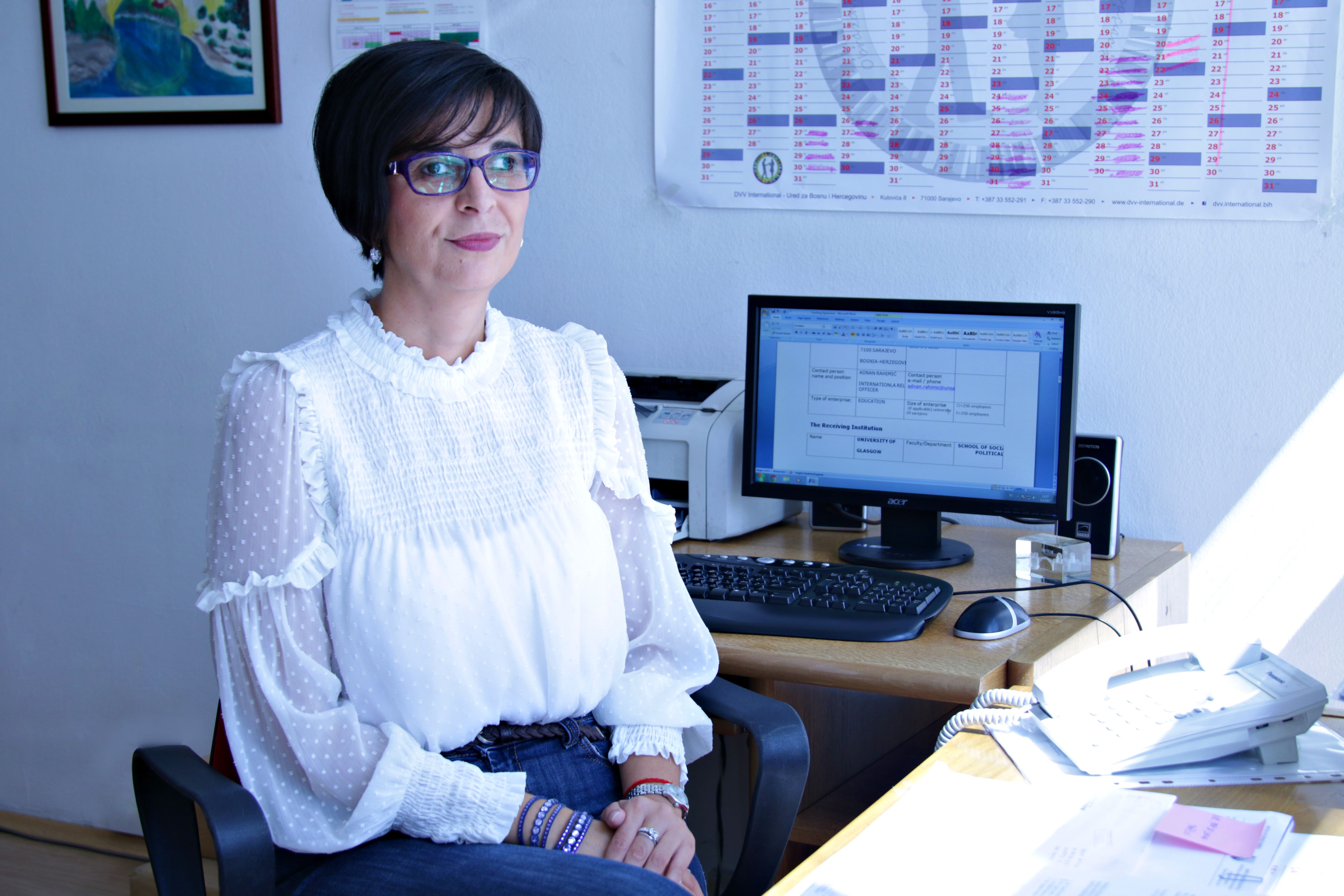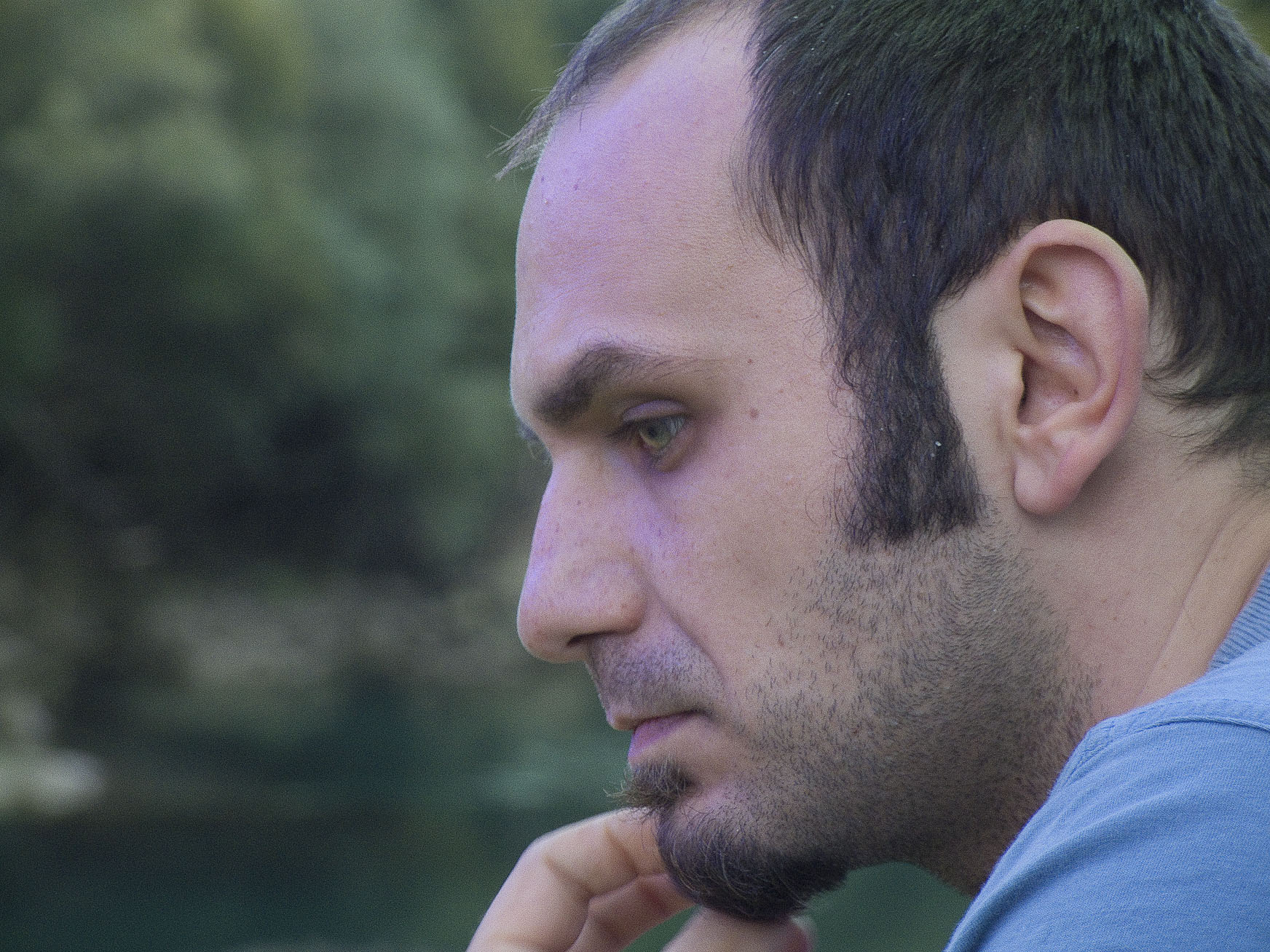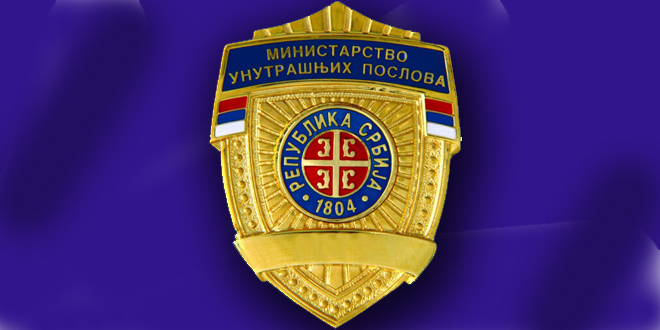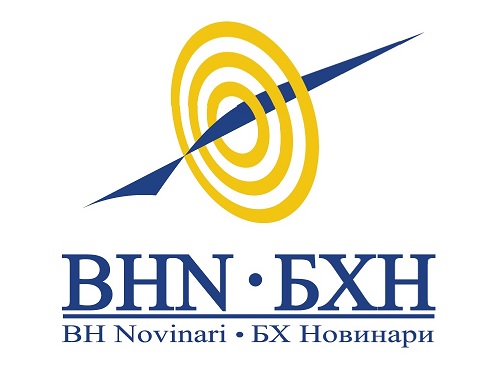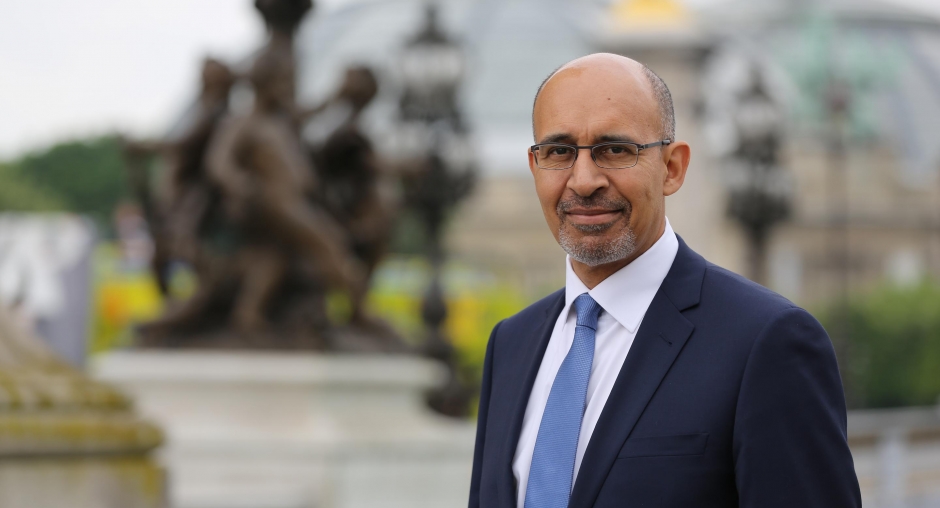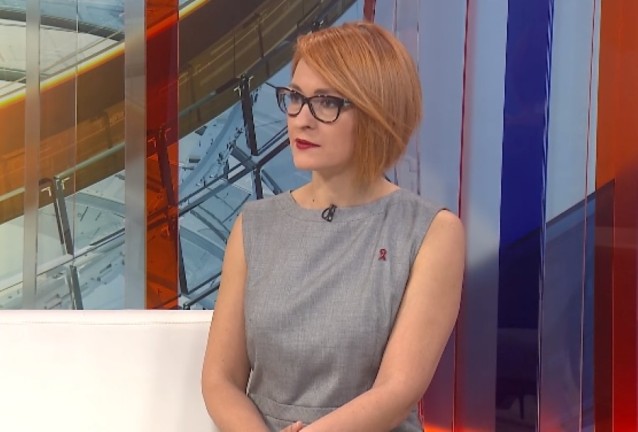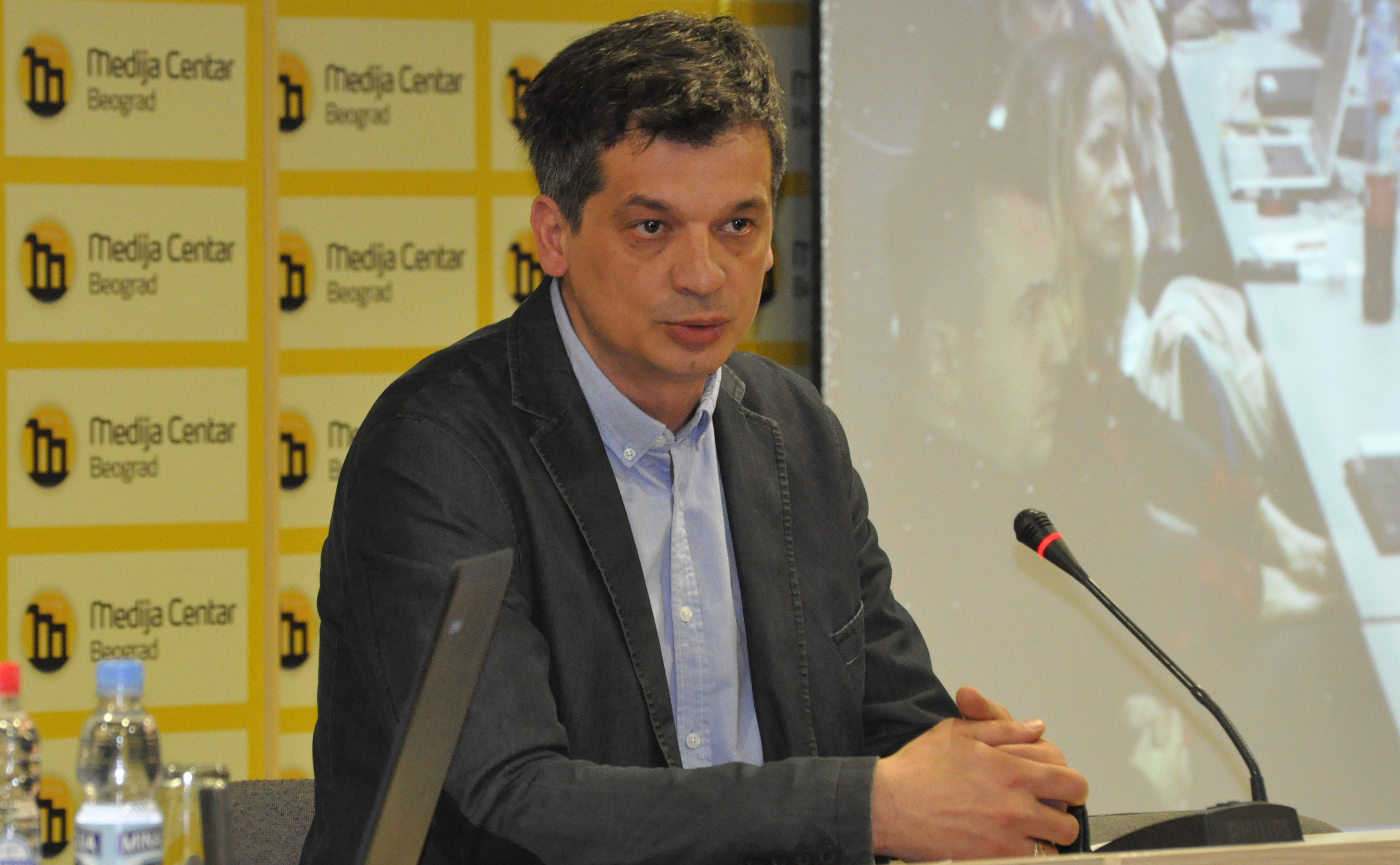SARAJEVO, 06.12.2017. – State-level public service, BHRT interviewed Dr. Sebija Izetbegović, director of the Clinical Center of the University of Sarajevo, which was to be published on October 25, 2017 at 21:15. Interview was done by the editor of the Morning Program, Lejla Zvizdić, who was the first one to announce it on her Facebook profile, and later on the interview was announced on the BHRT official web site. After it was decided that the interview would not be broadcast, the announcement was withdrawn without explanation from the BHRT website, and the journalist completely deleted her profile on social networks.
The director of BHT Mario Vrankić, on the request of journalists from other media, confirmed on the same day that the interview will not be published, but that he does not want to talk about the reasons. Almost immediately after the information about the removal of the announced interview appeared in the public, various discussions about the reasons for such a decision began, including one that the director of the CCUS was dissatisfied with some segments of the interview (including her statement that doctors who from CCUS went to work in other hospital “changed the aggregate state”, which was also mentioned in the announced BHT trailer), demanded its withdrawal, and that it was a clear case of censorship, as stated in the press release of the Association of BH journalists; acting editor of the BHT News Program, Fadil Smajic, said that the editorial board did not know, participate, or was in any way informed about the existence of an interview until an announcement was made on the web portal. No official announcement either from BHRT or from CCUS was available in the next ten days, and then on November 4, in the evening, the interview was broadcast, without any announcement, and again without clarifying why it was originally withdrawn from the program.
(Un)professional approach and the silence of those responsible
What followed, more than the withdrawal of the interview, opened a number of still unanswered questions about the (un) professionalism of BHT’s approach to this interview. Firstly, on social networks and web portals, screen shot photos from the beginning and the end of the interview were published, from which it is clear that the interview has been recorder on two occasions, that is, that some questions were broadcast from the original interview, while the others were recorded later, after withdrawing the interview from program. On 5 November, BHRT Director Belmin Karamehmedovic confirmed this, saying that three questions and three answers were re-recorded, since “there were technical problems.” The director said that there were problems with microphones and lighting, and that technicians tried to save the material, which is why the interview was originally withdrawn, and the three responses had to be re-recorded since they were incorrect technically. BHRT decided to clarify the details in the prime time news, in order to, as Karamehmedovic said, “show that there is no political pressure in this case.” There was no official statement from the Clinical Center of the University of Sarajevo after the broadcast, but on 9. November portal of the STAV magazine published a complete transcript of the interview aired at BHT explaining that “with all the attacks and criticism, there was little talk of what was actually stated, that is, the content of the interview that we are presenting in full.”
This precedent in a journalistic approach to an interview opened a series of questions related to professional standards and BHT attitude towards them. In this article, we highlight some of them, in an attempt to look more objectively and try to understand the causes of this approach of BHRT, and in an attempt to make BHT management answer some of them to citizens/ public in the interest of restoring citizens’ trust to this media.
Why was the interview withdrawn and than broadcasted?
The key and most important question is why, in fact, the interview was withdrawn, or why it was not broadcast after it was recorded and announced? The explanation that there were technical problems is not unrealistic, but the question is why was this justification given only after the viewers / the public realized that the interview was re-recorded subsequently? It would be logical if, indeed, it was a matter of technical problems with one part of the interview, that the material that was reviewed and evaluated as technically satisfactory was broadcast at the time it was announced, with the explanation to the viewers that the interview was not complete, and that the second part will be broadcast later. But that did not happen. It is also so unlogical that when allocating portions of interviews for the announced trailer, no technical problems were identified and that the announcement was released on the web without a previous technical check of the entire interview. In other words, why the interview was not broadcast if it was announced, or why was it announced if it was not certain that it would be broadcast?
It remains unclear also who made the decision not to broadcast the interview? But, also, who made the decision about making it? Namely, if acting editor of the news program, one day after the non-publication of the interview, stated that the editorial board did not know about the withdrawal of the interview, nor did they know that the interview was recorded at all, who actually made a decision about the shooting, and then about withdrawing the interview? In other words, in which circles, in addition to editorial staff of the informative program, decisions are made on the content of the program? The journalist who worked on the first version of the interview was not part of the newsroom, and since the beginning of the case, besides closing up the Facebook profile on which she was the first to announce the interview, she is also on sick leave.
Authorization or beautification of the responses
It is important to know why the withdrawal of the interview was not explained to the viewers (?!), either in the period in which it was supposed to be broadcast (by addressing the one who did the interview and announced it as exclusive), or by the press release of the editorial board before that date (since afterwards all explanations had much less credibility and gave reasons for suspicion) or, in the form of a text that would appear on the screen during the broadcasting of the interview when it was finally broadcast. After this, logical question is why the interview has been re-recorded at all? Was it more logical to broadcast only the part that was not technically problematic? What are the arguments for re-recording of some questions?
The fact that some questions have been re-recorded opens at least two doubts: that these are questions agreed in advance with the interviewee, so the interview was re-recorded in accordance to that agreement, which is contrary to professional standards. Some analysts in the interpretation of this case mentioned, as possibility, that the intervieww had a right to authorization, which was the reason why the interview was originally withdrawn and then updated, but this also absolutely comes out of the scope of professional standards. Authorization is defined as a confirmation of the authenticity of a statement or text before publishing, and is customary for printed media, so that the interviewee is sure that the journalistic interpretation of his/her words is consistent, but it has nothing to do with pleasure or dissatisfaction of the interviewee with the interview. That is, it should not be possible for the interviewees to say whether the interview is in the end adequate enough to be published. That kind of decision is made solely by the journalist who did the interview, alone or in agreement with the editor, since professional interviews are conducted in accordance with the public interest, and not in accordance with the interest of the one who is the interviewee.
Less important journalistic ethics
It was unknown to viewers whether the content which was broadcast is a combination of original and re-recorded interview, and why was that not announced and explained to viewers?
In other words, how did the public service fail to recognize its obligation to explain to the public that what they were watching was not what was shot for the first time, and did not realize that silence would additionally trigger suspicion of manipulation? It is also unknown whether the BHRT management and / or editorial board of BHT had the intention to say to viewers that the interview was done on two occasions and broadcast as one, if the citizens / the public themselves did not spot the difference at the beginning and at the end of the interview, and reacted to it through social networks and texts in classical media? That is, why the professional standards were neglected in the way that undoubted manipulation of the contents was made, which was presented as original, and recorded in two parts?
When it comes to recording the second part of the interview, since the author of the first interview was on sick leave, who has recorded second part of the interview and how was a journalist selected to complete the job? Does this violate the copyright of the journalist who did the first interview and was consulted?
And, perhaps, the most important issue in the whole case is why the director of BHRT addressed the public only after the whole story escalated, that is, who and how estimated that in the first case (withdrawal of the interview) the director of BHT Mario Vrankić should speak to media, and in the case of crisis after broadcasting interview that should be BHRT director Belmin Karamehmedovic? And why acting editor of the informative program addressed to the public only once, on his own initiative, in an attempt to protect his dignity and the dignity of his newsroom? In other words, did the BHRT finally realize that it was a crisis situation only when the re-recorded interview was brodcast, thinking that the way in which this case was solved was OK up to that time (announcement of the interview, and withdrawal without explanation, re-recording and broadcasting afterwards) and that there was no need to explain to the audience what was and why was happening?
In the end, we have to ask ourselves: does anyone (journalists, editors, editorial college, BHT management and the entire BHRT) think that professional standards have been violated in this case and will anyone be held accountable? Director Karamehmedovic tried to convince viewers that there was no political pressure to withdraw and re-record the interview, which is, although paradoxical, formally even somewhat correct, since prof.dr. Izetbegović is not the bearer of political function, but in any case it is a highly unprofessional approach and neglect of all professional standards.
Public accountability and post-crisis communication
What was supposed to be an exclusive interview and to bring a comparative advantage to BHRT in comparison to other media that tried to get this interview from the director of CCUS, has become a crisis situation, which the public service simply was not able to handle. None of the postulates of crisis communication (openness, acknowledgment of error, clear argumentation and timely informing of the public) was respected, and it turned out that in the system of work of this media there are inconsistencies, illogicality and mismatch, that decisions about the contents of the program are made by parts of the system that were not (nor should they be) competent. There is no doubt that the public service management interfered in editorial policy, but it remained unclear whether the management had communication with the management of CCUS when a decision was taken to withdraw and re-record an interview. This, in any case, leaves room for suspicion of pressure on the media, but for now we can not say with certainty whether it is a matter of censorship (prof. dr. Izetbegović’s request to see the interview before broadcast, as a kind of authorization and that it was broadcast when it fulfilled her criteria, for which there is no evidence or official statements for now) or self-censorship (management’s decision not to broadcast the original interview as it could cause dissatisfaction of the interviewee, and then to re-record it for some reason). Technical problems as an explanation would have seemed convincingly if they were offered to the public ten days earlier, and not only on November 5, in a statement by the director of BHRT.
This failure of BHT (and eventhose who know nothing about media can see that it is absolutely a matter of neglect of journalistic deontology), unfortunately, significantly ruined the credibility of this part of the public broadcasting system, which in most of the previous analysis of the program has shown a high degree of professionalism and independence. In fact, the biggest damage has been done to those professionals in BHT who work in terrible circumstances and who, despite the fact that they are without regular income and condemned to work on obsolete equipment, are doing their job responsibly, but the shadow of this non-professionalism fell on them. Also, to those who for years promoted the idea of the impossibility and unsustainability of the public service which is a service of citizens of whole B&H and is not subject to external influences, additional arguments are now given. A terrific own-goal , one would say using a sports dictionary. And in the sport, after the team loses the game because the team members played for the opponent, usually the selectors resign. For moral reasons. At the public service, as a journalist-beginner would say, “it remains to be seen” what the epilogue will be in this game. For now there are selectors in their places, the players are obviously not being asked about the tactics, and for those who until the last moment have been enthusiastically cheering for the team, no arguments were left for that. The moral behavior was not obviously discussed even when such a tactic was developed behind the back of the public, and it does not seem to be discussed even after the game was lost. Much of this speaks not only about the public service, not just about journalism in B&H, but also about the society we live in. Unfortunately.
 This article has been produced as a part of the project Western Balkan’s Regional Platform for advocating media freedom and journalists’ safety with the financial assistance of the European Union. The contents of this article are the sole responsibility of the BH Journalists Association and its authors, and can in no circumstances be regarded as reflecting the position of the European Union.
This article has been produced as a part of the project Western Balkan’s Regional Platform for advocating media freedom and journalists’ safety with the financial assistance of the European Union. The contents of this article are the sole responsibility of the BH Journalists Association and its authors, and can in no circumstances be regarded as reflecting the position of the European Union.


